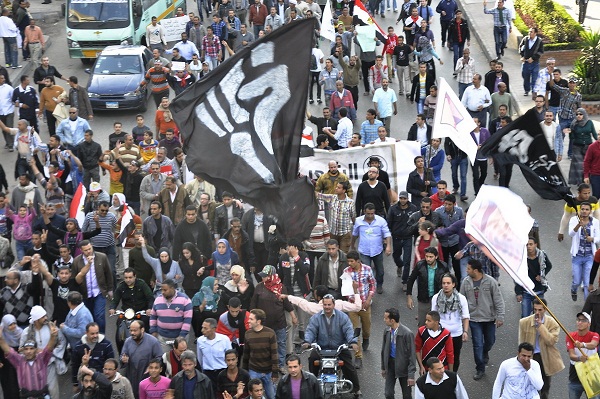CAIRO: Executives of the four prominent Italian fashion houses Valentino, Marzotto, Ferragamo and Ermenegildo Zegna, visited Egypt yesterday to investigate the possibility of manufacturing their brands with local producers.
A cautious Michele Norsa, Valentino s chief executive officer, described his company s plans to produce over 100,000 suits annually in Egypt at a press conference at the Ministry of Trade and Industry.
Norsa was keen to emphasize that this production is but a small part (1 percent) of Valentino s overall output. The remainder of the company s garments is produced entirely in Italy, despite the country s high cost base.
Italian manufacturing continues to dominate luxury clothes because of the prestige associated with the country s name when it comes to fashion. This is the primary challenge for Egypt and other nations that vie for sourcing ready-made garments from such big names as Hugo Boss, Valentino and Ferragamo.
While including Made in Egypt on the label of luxury brands is acceptable in Europe, Valentino s Egyptian production, is sold entirely in Europe and mainly in Italy. Consumers in many countries prefer Italian production.
The United States and Japan, for example, want Made in Italy as a guarantee of top-quality, explains Norsa. When you talk about luxury products, I do not expect consumers in Dubai, Doha, Bahrain to be happy importing luxury goods from Egypt. So I think the core of the luxury fashion industry will remain in Italy.
There is an opportunity, however, at the lower end of fashion lines. If you talk about sportswear or casual-wear, Norsa continues, which is produced everywhere in the world, even for the top names [such as] Hugo Boss and Valentino, in that case I think there is a very big opportunity and [Egypt] could become a very good hub for production.
These lower-end lines also have a potential market in Egypt and other developing countries. We are both considering what can happen in production [and] in the market of our goods, Zegna adds. I think we have to know countries like Egypt more in order to find possibilities of collaboration, whether it is in sourcing, in producing together or in selling our goods.
Outsourcing production is being considered by Italian designers in response to competitive pressures from globalization. The Italian textile and apparel industry is facing quite a tough time, says Paulo Zegna, chief executive officer of the Ermenegildo Zegna Group, especially in the low end of it, mainly due to the entrance of goods coming from China since the total opening of the barriers after Jan. 1, 2005.
As a result, Italian brands are turning to emerging markets for production. The low cost of labor makes Egypt an attractive potential for a manufacturing base. Such savings, however, are offset by the need to import high-quality fabrics.
The cost of work is not the biggest component, explains Norsa, and since we have to import and use mostly European fabrics, this does not make such a big impact on the costs.
Meanwhile, Italian corporate orthodoxy is the biggest obstacle to sourcing brands in Egypt. We have an average of a little bit over 10 people per company in Italy in our field, explains Zegna. And you can imagine how hard it is for such a small company to decide to change totally the way to behave in the future. They have, until now, worked safely in Italy.
The visit by the four fashion houses follows the formation of the Italian-Egyptian Business Council in January, when the Minister of Trade and Industry visited his counterpart in Rome with a large delegation of businesspeople.
In addition to meetings with Minister of Trade and Industry Rachid Mohammed Rachid and Minister of Investment Mahmoud Mohieddin, the Italian executives met yesterday with local ready-made garment producers, who put forth the case for manufacturing in Egypt. We met a delegation of Egyptian industrialists, says Gaetano Marzotto, head of the Marzotto Group. We ve had a presentation of the situation. We think it s very positive.
Egyptian manufacturers have also been invited to a major Italian fair for men s fashion in June. It is an opportunity to meet more than 800 brands, Marzotto adds. And there is a big opportunity for Egyptian [businesses] to work even more with our company.

